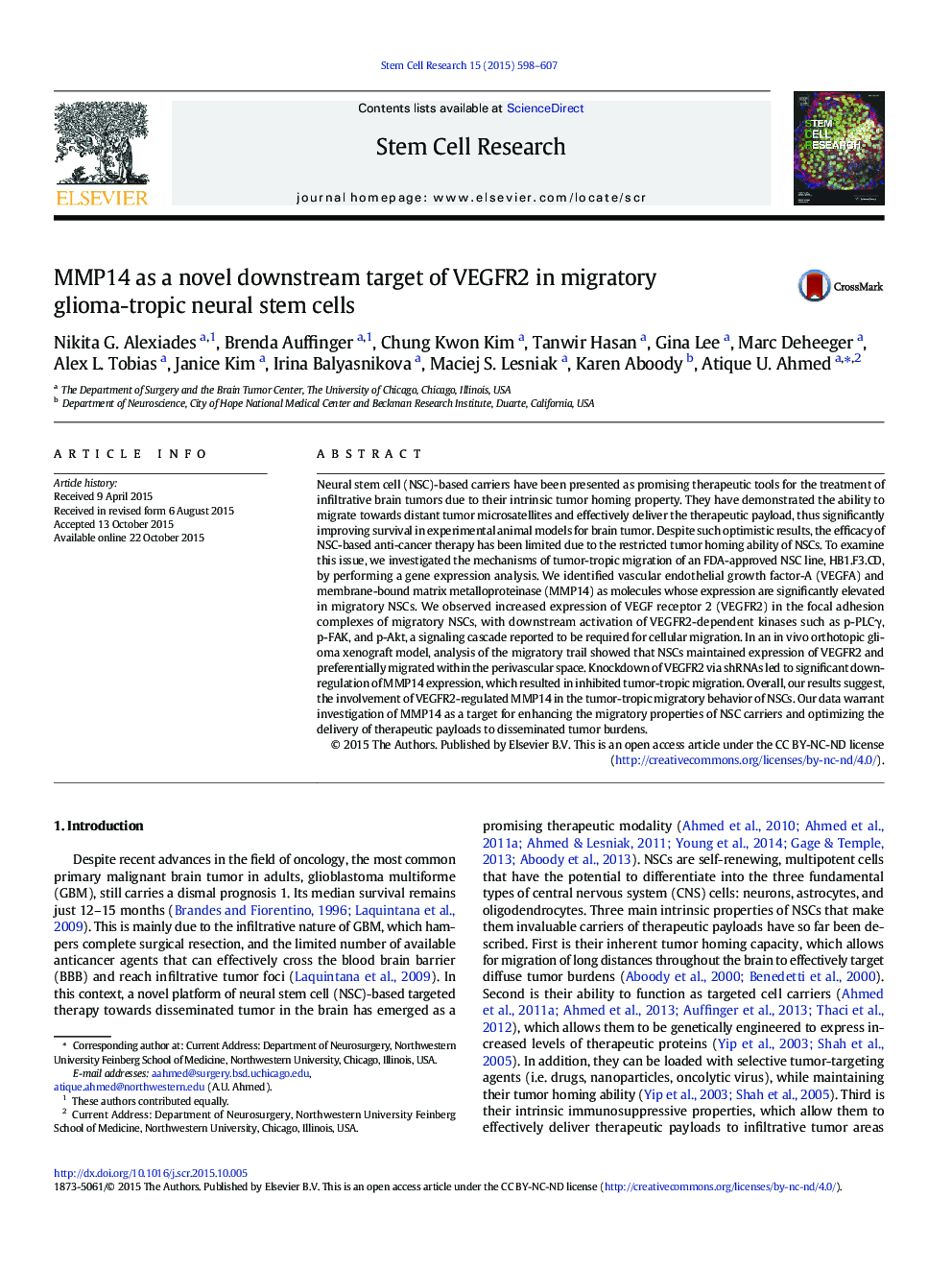| Article ID | Journal | Published Year | Pages | File Type |
|---|---|---|---|---|
| 2093907 | Stem Cell Research | 2015 | 10 Pages |
•We investigated the mechanisms of tumor-tropic migration of immortalized NSC line, HB1.F3.CD.•Gene expression analysis identified vascular endothelial growth factor-A (VEGFA) as molecule those expressions is elevated in the migratory NSCs.•Membrane-bound matrix metalloproteinase,MMP14 is one of the downstream effector molecules for VEGFR2 signaling in the migratory NSCs.
Neural stem cell (NSC)-based carriers have been presented as promising therapeutic tools for the treatment of infiltrative brain tumors due to their intrinsic tumor homing property. They have demonstrated the ability to migrate towards distant tumor microsatellites and effectively deliver the therapeutic payload, thus significantly improving survival in experimental animal models for brain tumor. Despite such optimistic results, the efficacy of NSC-based anti-cancer therapy has been limited due to the restricted tumor homing ability of NSCs. To examine this issue, we investigated the mechanisms of tumor-tropic migration of an FDA-approved NSC line, HB1.F3.CD, by performing a gene expression analysis. We identified vascular endothelial growth factor-A (VEGFA) and membrane-bound matrix metalloproteinase (MMP14) as molecules whose expression are significantly elevated in migratory NSCs. We observed increased expression of VEGF receptor 2 (VEGFR2) in the focal adhesion complexes of migratory NSCs, with downstream activation of VEGFR2-dependent kinases such as p-PLCγ, p-FAK, and p-Akt, a signaling cascade reported to be required for cellular migration. In an in vivo orthotopic glioma xenograft model, analysis of the migratory trail showed that NSCs maintained expression of VEGFR2 and preferentially migrated within the perivascular space. Knockdown of VEGFR2 via shRNAs led to significant downregulation of MMP14 expression, which resulted in inhibited tumor-tropic migration. Overall, our results suggest, the involvement of VEGFR2-regulated MMP14 in the tumor-tropic migratory behavior of NSCs. Our data warrant investigation of MMP14 as a target for enhancing the migratory properties of NSC carriers and optimizing the delivery of therapeutic payloads to disseminated tumor burdens.
